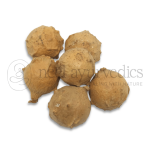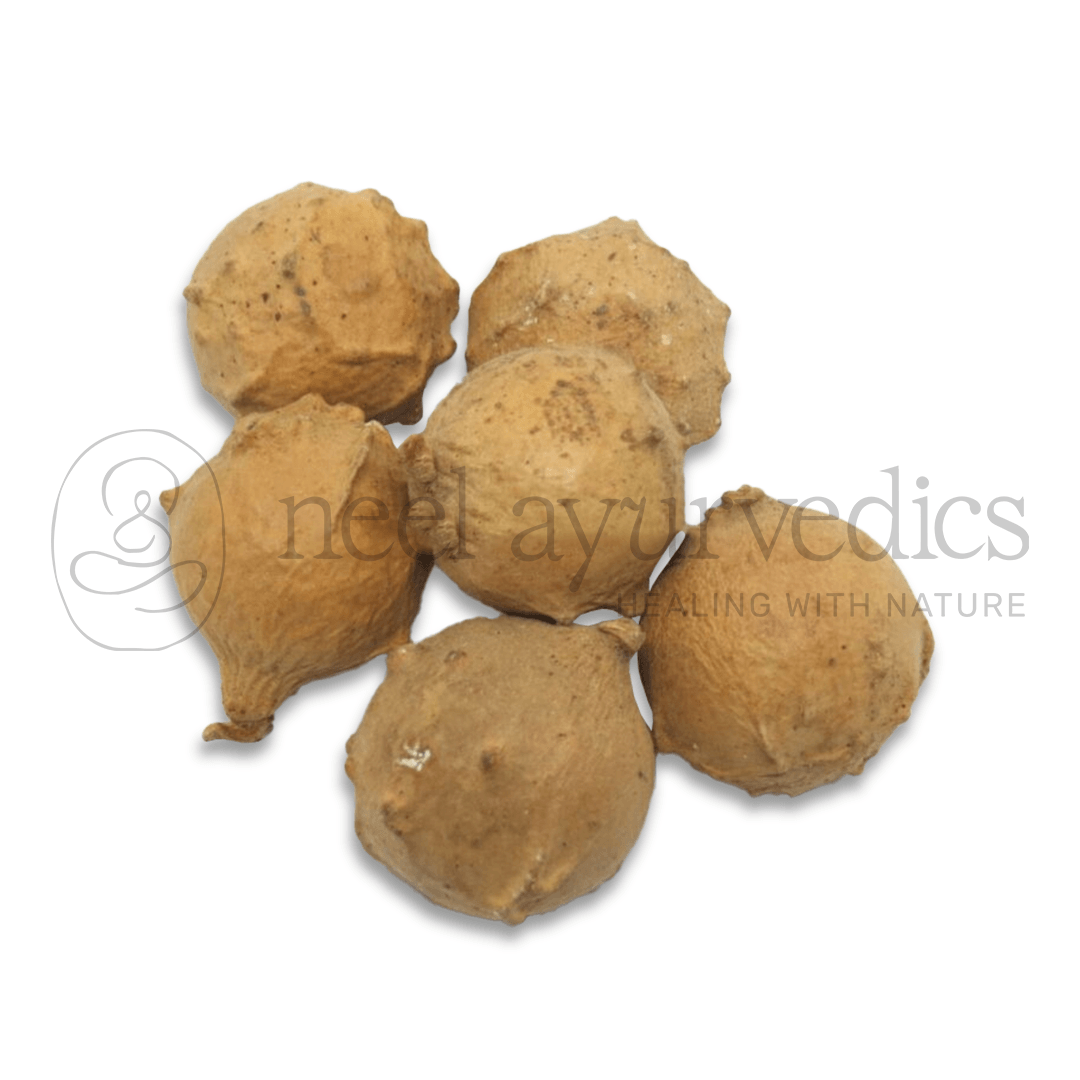Majuphal (Oak Gall) – A Natural Astringent and Healer
Botanical Name: Quercus infectoria
Common Names: Majuphal, Mayaphal, Machikai, Katalu Mayu, Majjaphala, Chidraphala, Mayuka, Malayu
Majuphal, also known as oak galls, is a unique herbal formation that develops on the leaves of the oak tree (Quercus infectoria). It is formed as a result of insect activity, creating hard, spherical structures rich in medicinal properties. There are two main varieties:
White Gall Majuphal
Green Gall Majuphal
The oak tree from which Majuphal is derived typically grows up to 6 feet and thrives in moist soil, often found in lowlands and mountain valleys. It bears monoecious flowers, meaning both male and female flowers grow on the same tree.
Ayurvedic and Medicinal Benefits of Majuphal
Majuphal is highly valued in Ayurveda for its Kashaya (astringent) and Sita (cooling) properties. It is known for promoting skin health and oral hygiene.
Key Benefits :-
Wound Healing: Majuphal contains potent antioxidant and anti-inflammatory compounds that help accelerate wound recovery.
Antibacterial Action: Its natural antibacterial properties reduce the risk of skin infections and support healthy skin.
Skin Tightening: As an astringent, Majuphal helps tighten skin tissues, making it useful in skincare applications.
Throat Care: Gargling with a decoction of Majuphal may help soothe sore throats and manage tonsillitis.
Oral Health: Regular use can help prevent bleeding gums, reduce inflammation, and provide a cooling, soothing effect on the mouth.
Traditional Uses in Ayurveda :-
Gargle (Kavala): For treating sore throat and tonsils.
Mouth Rinse: To manage gum bleeding and inflammation.
Topical Paste: Applied to wounds to promote healing.
Face Packs: Used in powder form for firming skin and controlling acne.












Reviews
There are no reviews yet